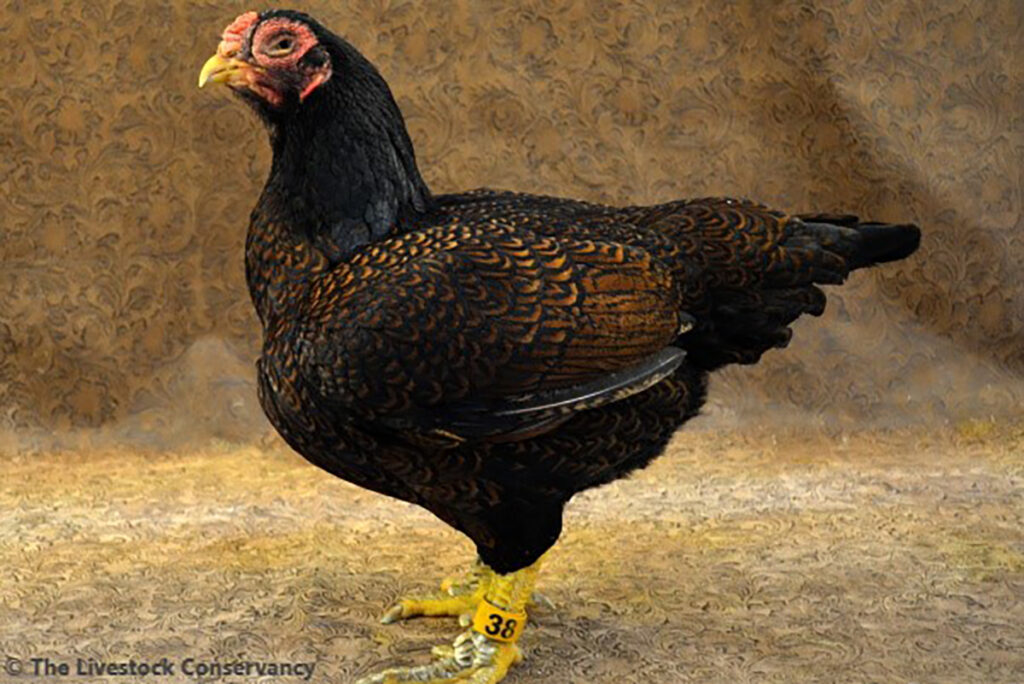What is a Cornish Hen?
A Cornish hen, also known as a Cornish game hen, is a type of young chicken that has gained popularity for its tender meat and compact size. This article will delve into the history, characteristics, and uses of Cornish hens, providing a comprehensive understanding of what makes them unique.
History and Origin
The term “Cornish hen” originates from the Cornish breed of chicken, which was developed in Cornwall, England. However, the Cornish hens commonly found in grocery stores today are not purebred Cornish chickens but rather a hybrid breed known as the Rock Cornish cross. This hybrid is a cross between a Cornish chicken and a White Plymouth Rock chicken.
Characteristics
Traditional Cornish Chickens
- Breed Description: Traditional Cornish chickens are a heritage breed known for their large, well-muscled bodies and short feathers. They have broad, widely spaced legs and large, deep-set eyes. Cornish chickens are prized for their white meat and fine texture.
- Size and Weight: Cornish chickens can grow quite large, with males weighing around 10.5 pounds and females weighing about 8 pounds.
- Egg-Laying: Cornish chickens are poor egg-layers and are primarily bred for meat production.
Commercial Cornish Hens
- Hybrid Breed: Commercial Cornish hens are Rock Cornish cross hens, which are a hybrid of Cornish and White Plymouth Rock chickens. These birds are bred for rapid growth and are processed at a young age, typically between 4 to 5 weeks old.
- Size and Weight: Commercial Cornish hens are smaller, weighing between 1 to 2.5 pounds. They have white feathers and are known for their tender meat and thin skin, which makes them ideal for roasting.
- Health Considerations: Due to their rapid growth, commercial Cornish hens are prone to health issues such as heart attacks and skeletal deformities.
Uses and Preparation
Cornish hens are highly versatile and can be prepared in various ways to enhance their flavor and texture.
- Roasting: One of the most popular methods of preparing Cornish hens is roasting. They can be seasoned with herbs and spices, and then roasted in the oven at high temperatures to achieve a golden-brown finish.
- Marinades and Sauces: The small size and thin skin of Cornish hens make them ideal for absorbing marinades and sauces. This allows for a wide range of flavor profiles, from classic roast chicken to more exotic variations.
- Single-Serving Size: Cornish hens are often preferred for their single-serving size, making them a favorite for small gatherings and special events.
Table: Key Facts About Cornish Hens
| Fact | Description |
|---|---|
| Traditional Cornish Chickens | Heritage breed, large, well-muscled bodies, short feathers, poor egg-layers |
| Commercial Cornish Hens | Rock Cornish cross hens, processed at 4-5 weeks old, weigh 1-2.5 pounds |
| Size and Weight | Commercial: 1-2.5 pounds; Traditional: Males 10.5 lbs, Females 8 lbs |
| Feathers and Skin | Commercial: White feathers, thin skin; Traditional: Short feathers |
| Health Considerations | Commercial: Prone to heart attacks and skeletal deformities |
| Preparation Methods | Roasting, marinades, sauces |
| Single-Serving Size | Ideal for small gatherings and special events |
FAQ Section
Q: What is the difference between a traditional Cornish chicken and a commercial Cornish hen?
A: Traditional Cornish chickens are a heritage breed, large and well-muscled, while commercial Cornish hens are a hybrid breed (Rock Cornish cross) processed at a young age and weighing between 1 to 2.5 pounds.
Q: How are commercial Cornish hens typically prepared?
A: Commercial Cornish hens are often roasted at high temperatures and can be seasoned with herbs and spices or marinated to enhance their flavor.
Q: Why are commercial Cornish hens prone to health issues?
A: Commercial Cornish hens are prone to health issues such as heart attacks and skeletal deformities due to their rapid growth rate.
Q: What is the ideal age for processing commercial Cornish hens?
A: Commercial Cornish hens are typically processed at 4 to 5 weeks of age.
Q: Can Cornish hens be raised at home?
A: Yes, Cornish hens can be raised at home. However, they require specific care and conditions to thrive, including adequate space for exercise and protection from cold weather.
Q: What are the advantages of using Cornish hens in cooking?
A: Cornish hens offer several advantages, including their tender meat, thin skin, and single-serving size, making them ideal for various cooking methods and special occasions.
References
- Wikipedia: Chicken – For general information on chicken breeds and their characteristics.
- Oklahoma State University: Cornish Chickens – For detailed information on the Cornish breed and its history.
By understanding the history, characteristics, and uses of Cornish hens, you can appreciate the unique qualities that make them a popular choice for both home cooks and professional chefs. Whether you are looking to prepare a special meal or simply want to learn more about this versatile bird, this information will provide you with a comprehensive overview of what Cornish hens have to offer.



